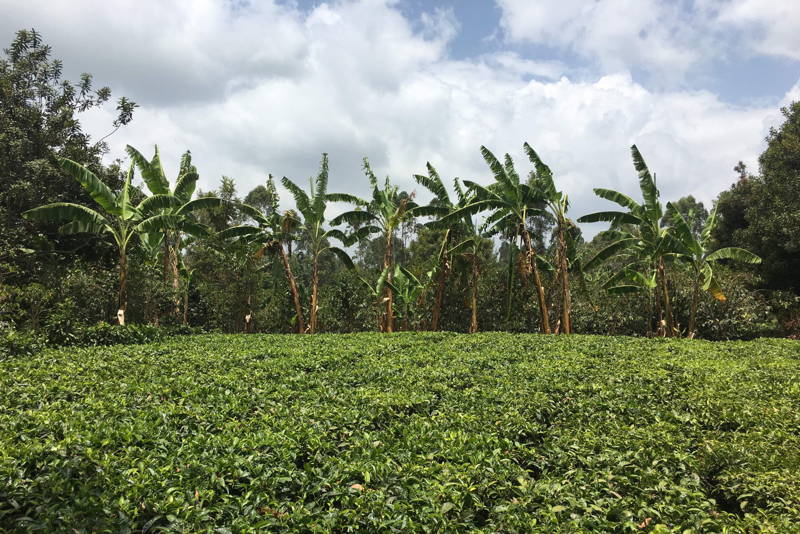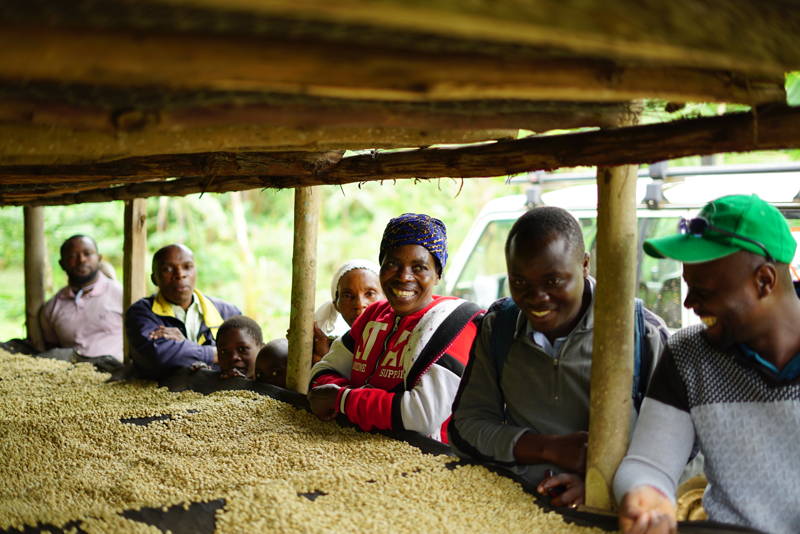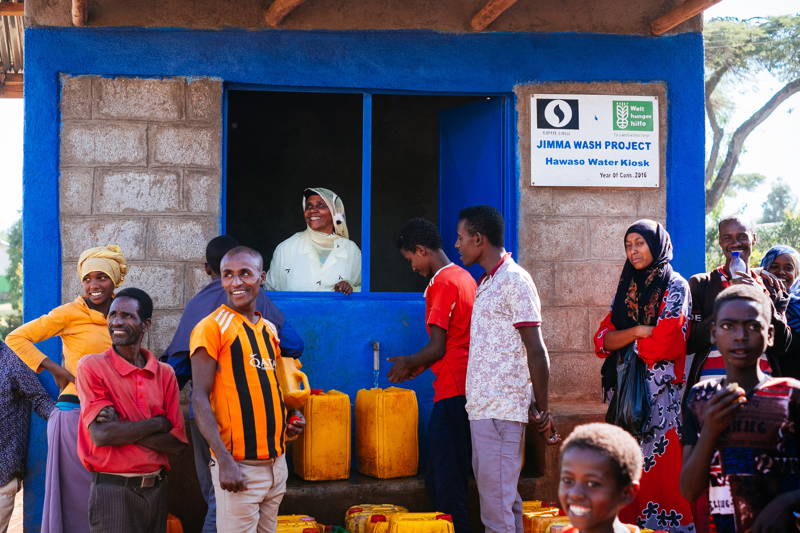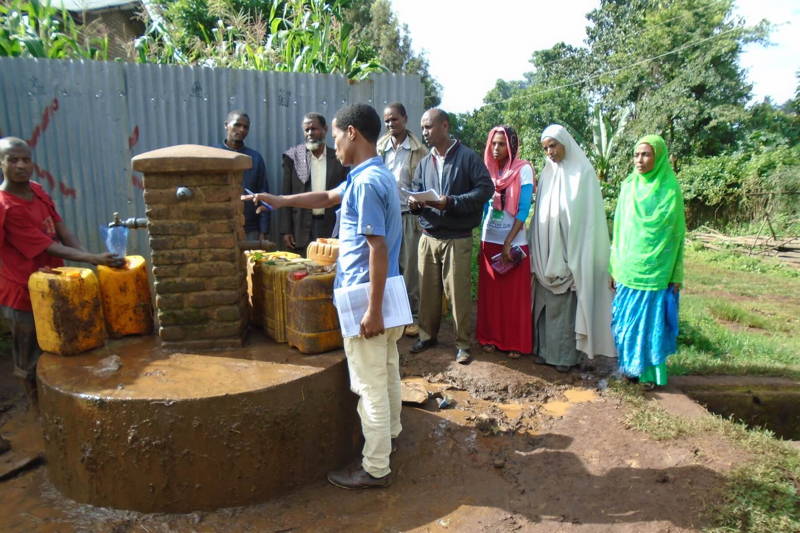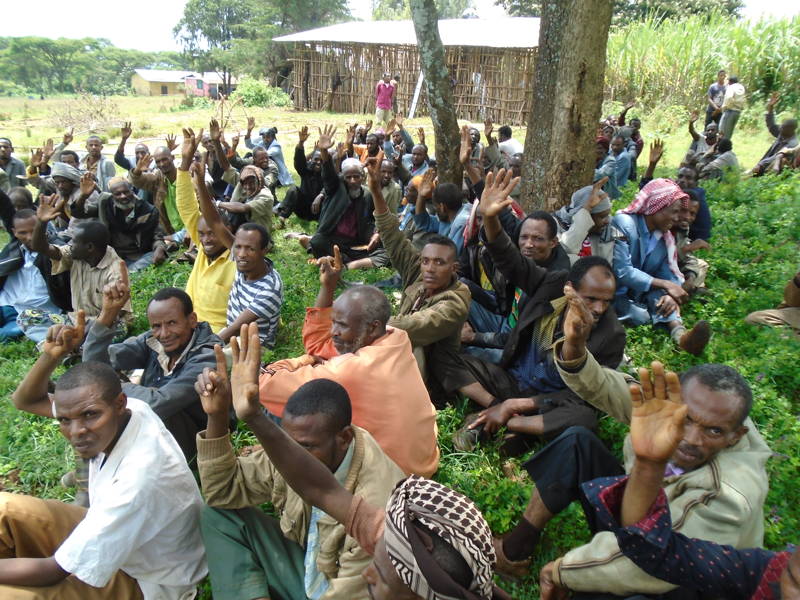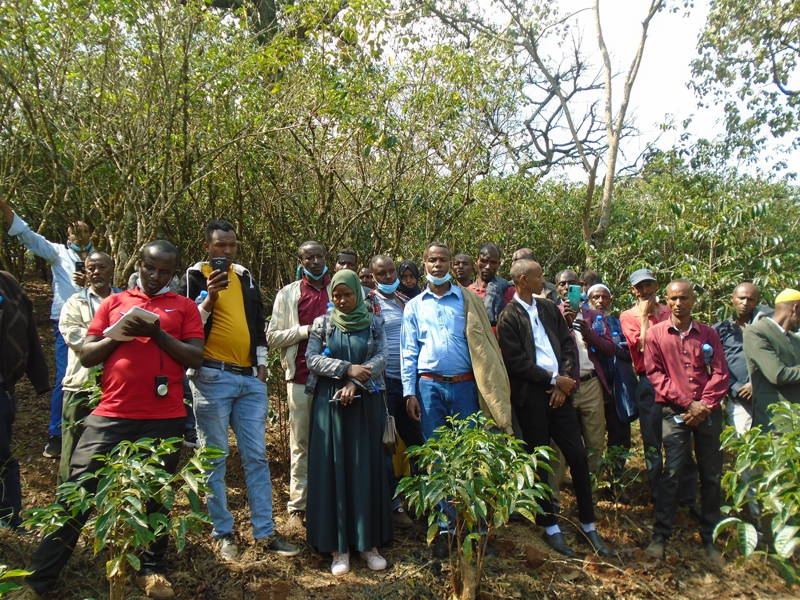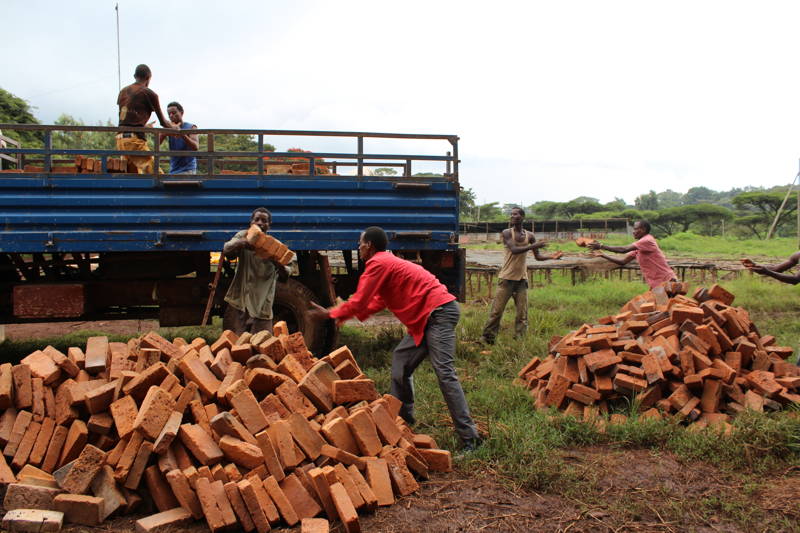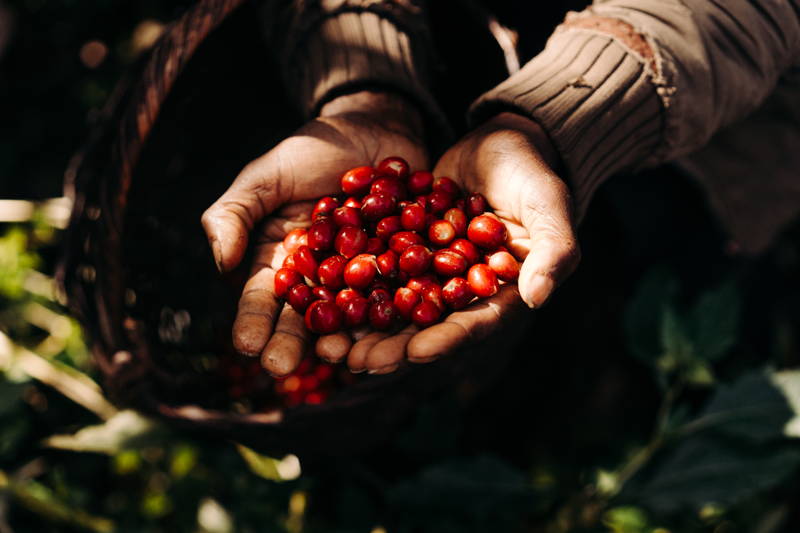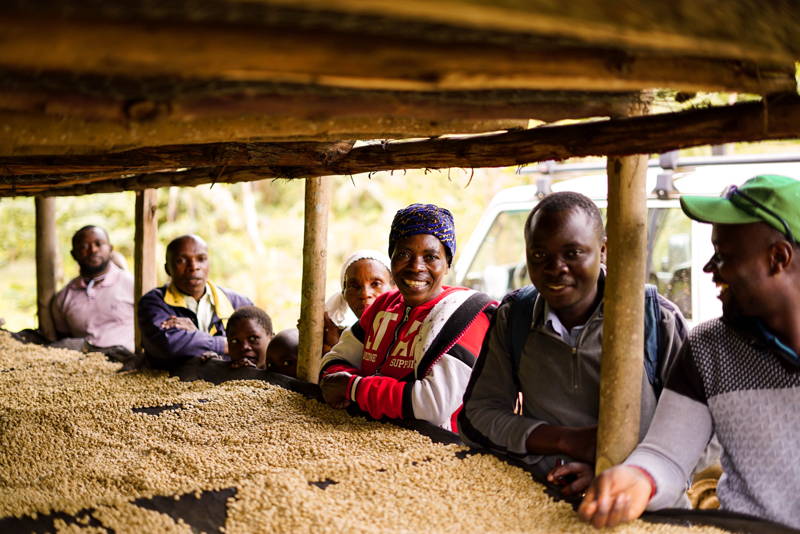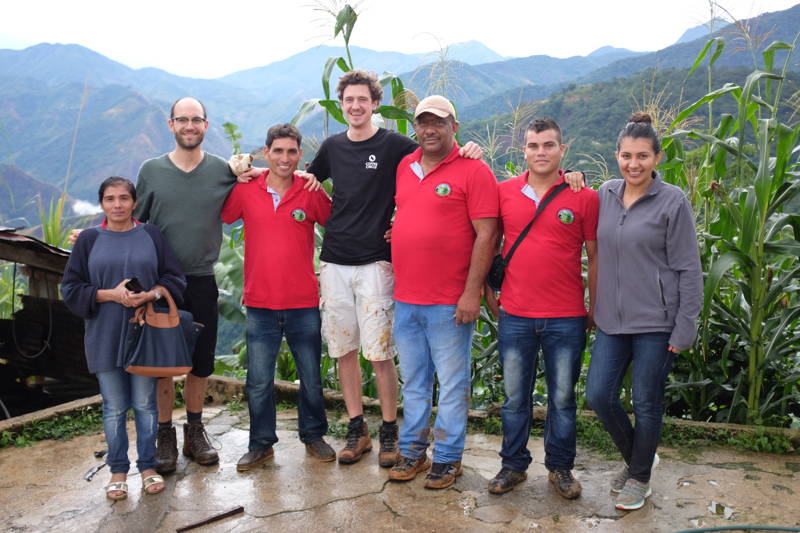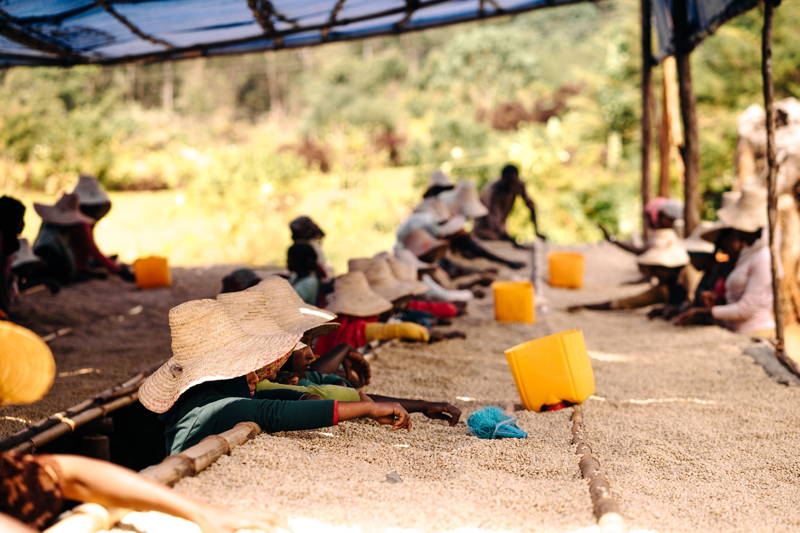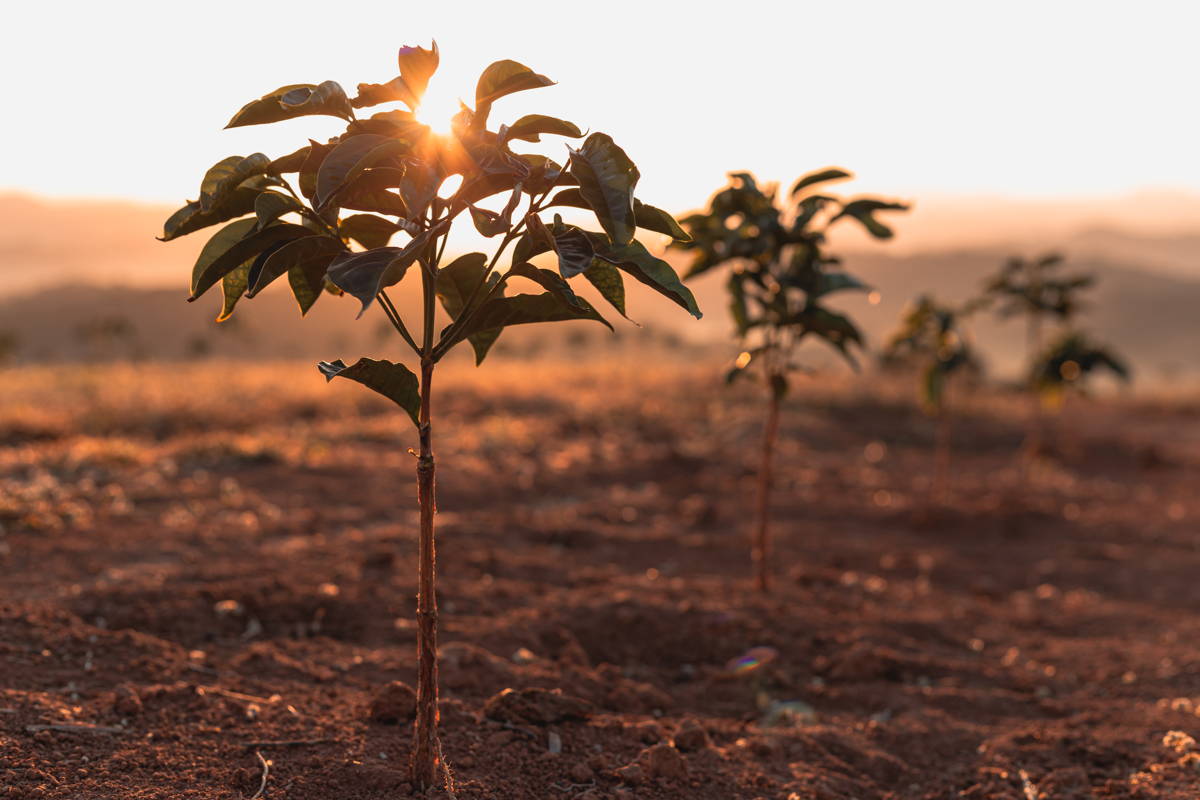
Impact Report 2022/23
For every kilo of coffee you buy, we invest € 1 with our Coffee Circle Foundation e.V. in projects in the countries of origin.
In this Impact Report, we show you what we have achieved together – in the last 24 months and in the last few years since our foundation in 2010. Here you can find out how many farmers, harvest workers, cooperatives, residents and their families we have reached thanks to your help and which projects we have initiated and implemented – transparently presented for you.
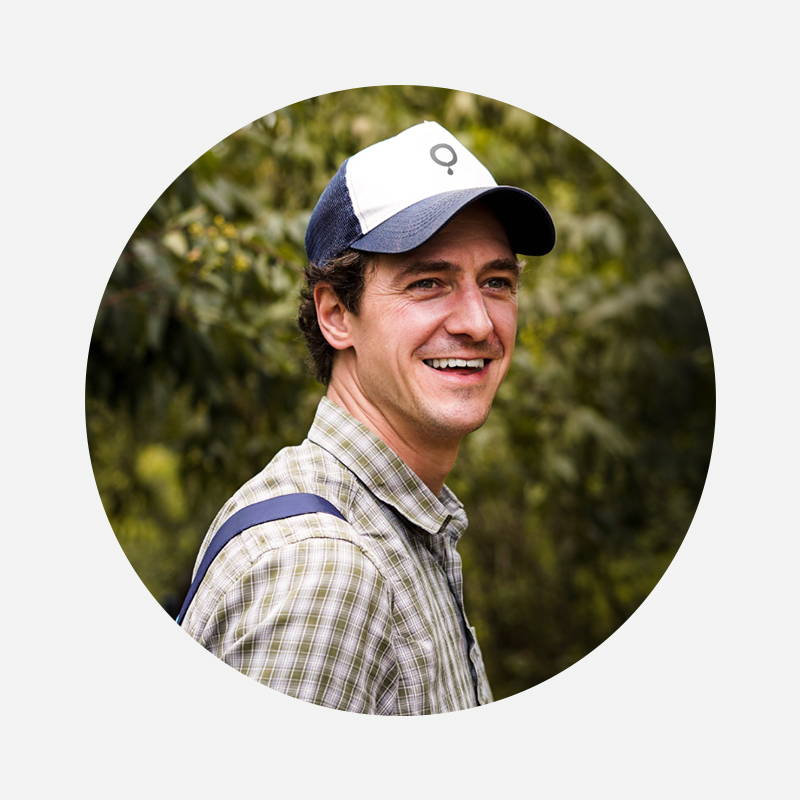
Coffee Circle in figures
Through coffee sales and additional donations, we were able to generate € 4,611,984 in total. 100 % of the donations are directly implemented into projects in the countries of origin.
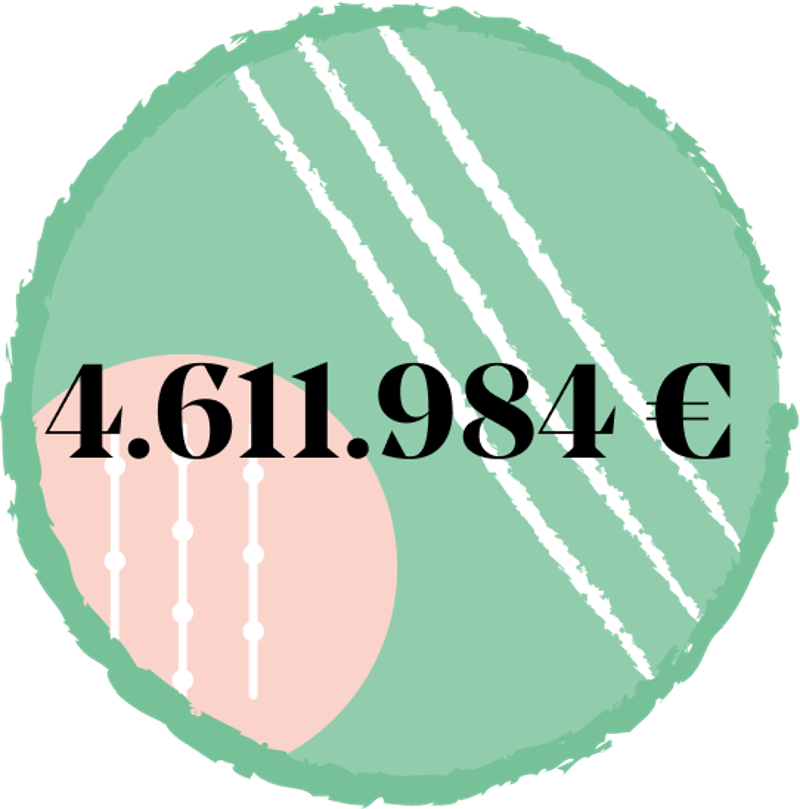
Through direct trade with cooperatives and our projects, we have reached a total of 1,006,636 people who benefit sustainably from our commitment.
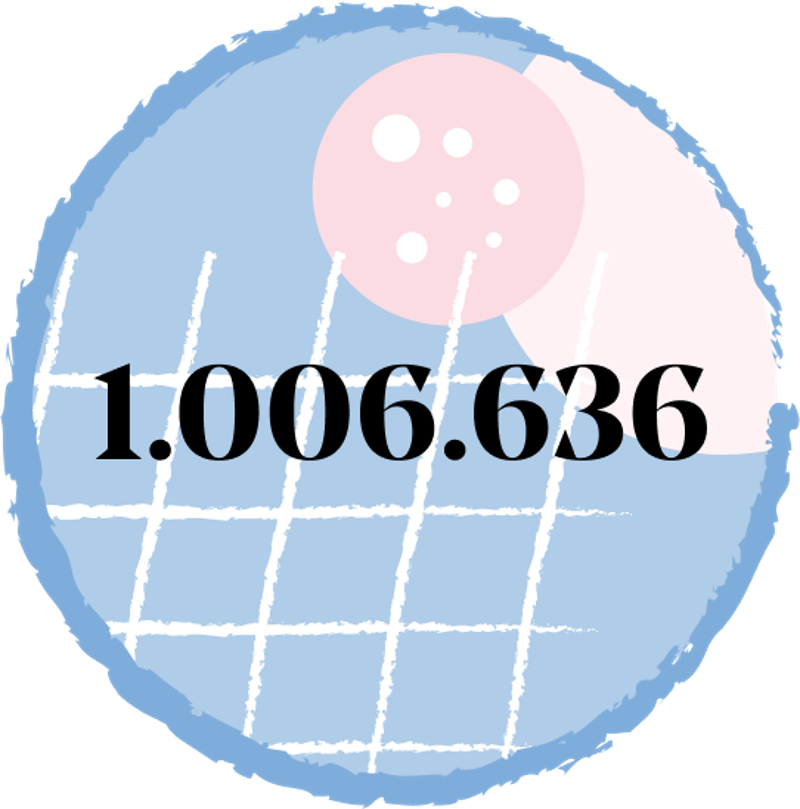
So far, we have been able to reach 288,617 people only through projects in the areas of education, health, and coffee cultivation.
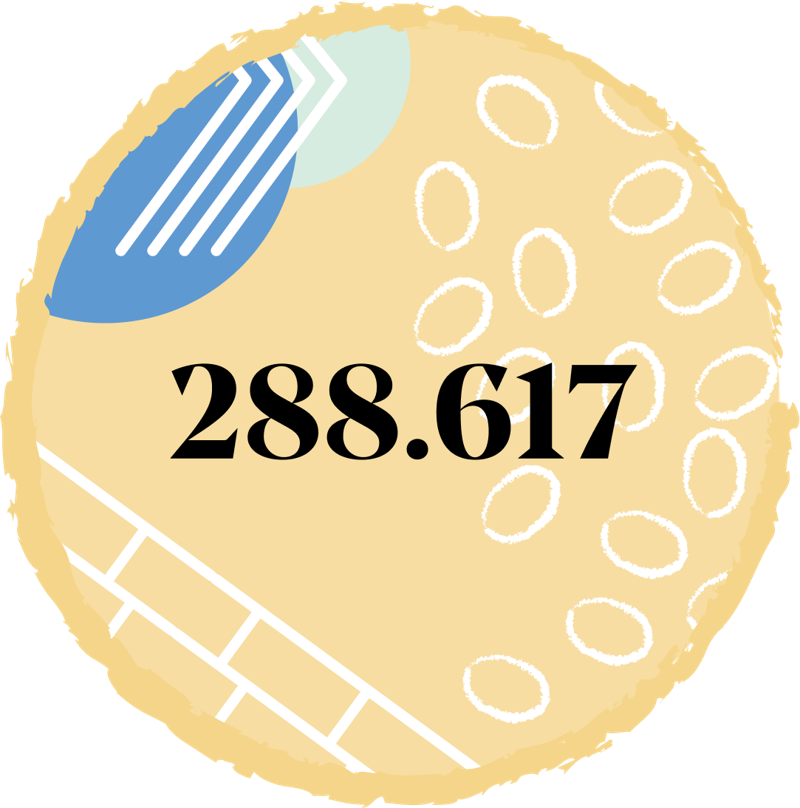
From 2010 until 2023, we were able to generate € 2,214,547 in donations through coffee sales. Over the years, we have also received € 146,584 in extra donations and € 1,200,000 in donations from the German Federal Ministry for Economic Cooperation and Development (BMZ) for our multi-link WaSH project and € 1,000,000 from the German Federal Ministry for Economic Cooperation and Development (GIZ).
The number of farmers reached through direct trade is the total number of farmers reached since Coffee Circle and its Foundation were founded.
The number of people reached through project work is an estimate. As explained in the respective project overviews, it is often not possible to determine this number precisely: water kiosks built by us or extended springs often supply several surrounding villages, whose population fluctuates over the years. In the detailed project reports, we indicate how we calculated at the individual numbers of people reached – including family members, for example. On average, 5 people live in a household.
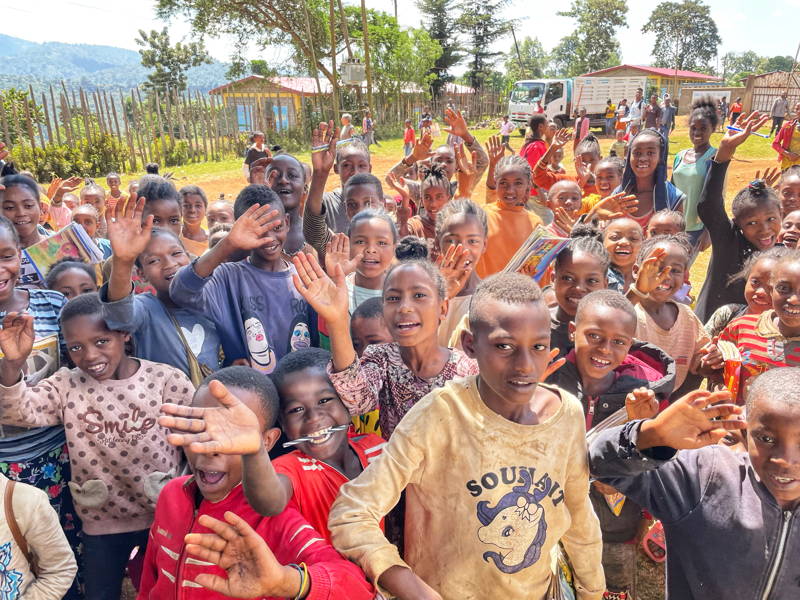
Comparison of donations from coffee sales from 2023 to 2019:
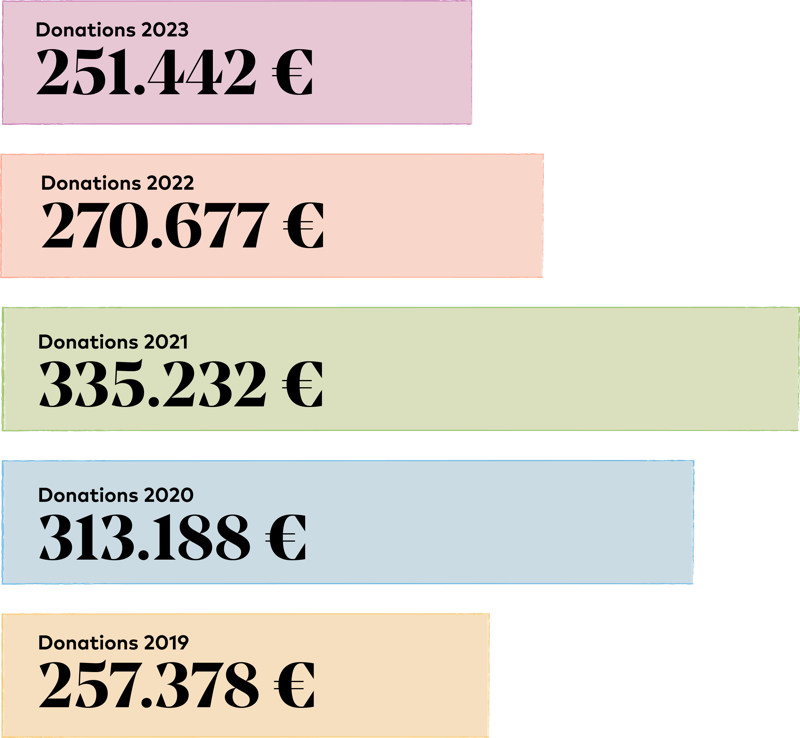
News from projects
2022 and 2023 in retrospect
2022 and 2023 were challenging years. Due to lower coffee sales, we were able to invest fewer donations in the project regions. Nevertheless, we made very good progress, which we are sharing with you transparently here.
Progress in the WaSH project (Water, Sanitation, Hygiene) in the area of clean drinking water
We are happy to say that the donations from your coffee purchase for the clean drinking water and hygiene project have enabled us to strengthen existing capacities, build more water kiosks, and maintain and supplement reservoirs and springs. In 2022, we completed the WaSH project in the Jimma region and have been investing in maintenance to provide these regions with clean and safe drinking water ever since.
We have installed solar panels in the Mana district to power a new electric water pump. The drinking water from the Homecha spring, which we tapped in 2015, can now supply people even more widely, as it is now pumped to a distribution point in the Mana region, from where schools, mosques, churches, and water kiosks in neighboring districts are supplied. One of the newly opened water kiosks supplies around 1,168 pupils at a school in the Mana district. In addition, the Fincha Gobiti spring has been tapped and a total of 44 km of pipes have been laid to supply water to the region.
A clinic, which is responsible for over half a million people, is also supplied with clean drinking water. Fortunately, a reduction in hygiene-related diseases and infections has already been recorded at the clinic.
WaSH project in Gomma
In the past two years, we have not only completed the WaSH project in the Jimma region but also launched the same project in a new region. In the Gomma region, another 69,000 people will now be supplied with clean drinking water by 2025. To this end, we are also tapping springs there, distributing the water via water kiosks, and building distribution points for the communities. We are again being supported by our long-standing partner, Welthungerhilfe. We look forward to reporting more successes to you in the next project updates.
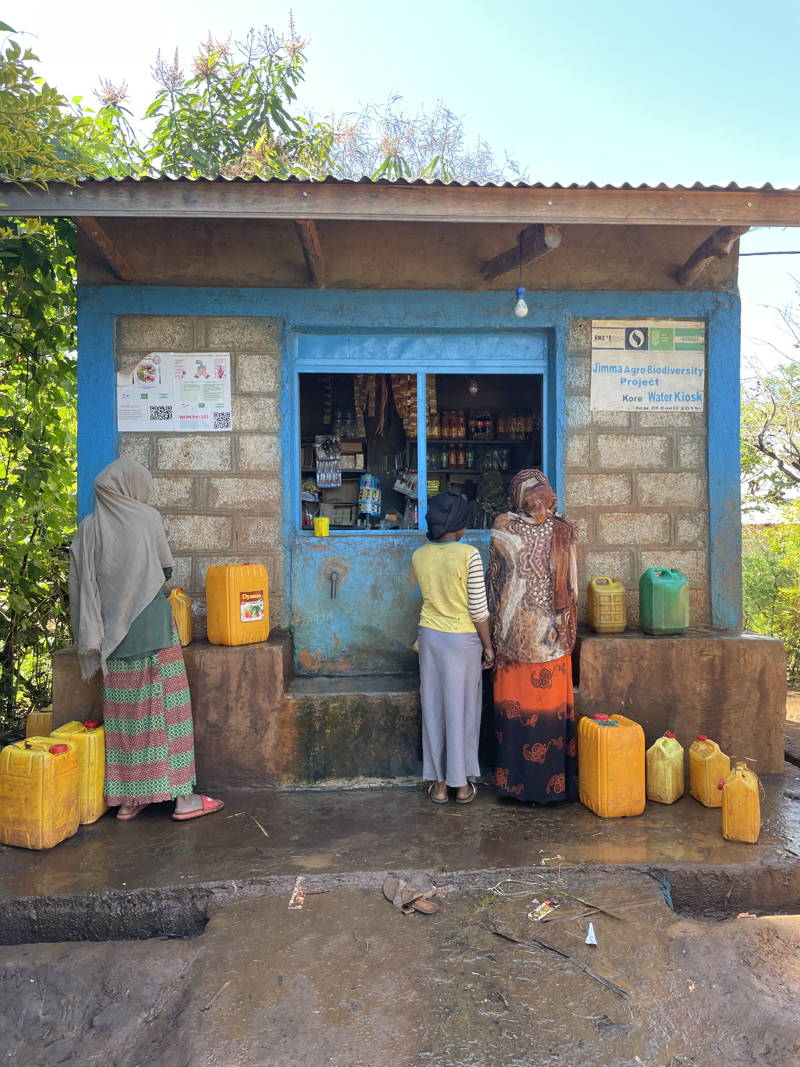
Overview WaSH Project
Progress in increasing coffee quality
In Doyo, Martin and Hannes visited a young coffee plant nursery in November 2022, which supports farmers in gaining access to seedlings for healthier and more productive coffee plants. The young coffee plants are used to replace old coffee plants and thus sustainably improve coffee quality. The reforestation of some deforested areas is also in full swing. What once was a fallow area with red earth a few years ago has now developed into a densely overgrown green area.
As part of our biodiversity projects in Jimma, Ethiopia, our partners from Welthungerhilfe have planted 177,972 seedlings (including 55,000 coffee seedlings), partly as a reforestation project and partly to establish and equip tree nurseries with coffee plants and shade trees.
To improve the livelihoods of coffee farmers in the long term, it is important to give cooperatives access to the market, e.g. with equipment and the necessary knowledge. The new cooperatives listed below have received funding for a washing station and training to improve coffee quality. As a result, they were able to export specialty coffee for the first time in 2022:
- Buture: 570 Producers
- Bikila Ibsa: 1100 Producers
- Bedadina: 280 Producers
- Chami Chago: 298 Producers
- Atro Sufa: 57 Producers
Both the increase in coffee quality through healthier coffee plants and the production of washed coffee means that farmers can sell their coffee at a higher price and thus generate a higher income for their families.

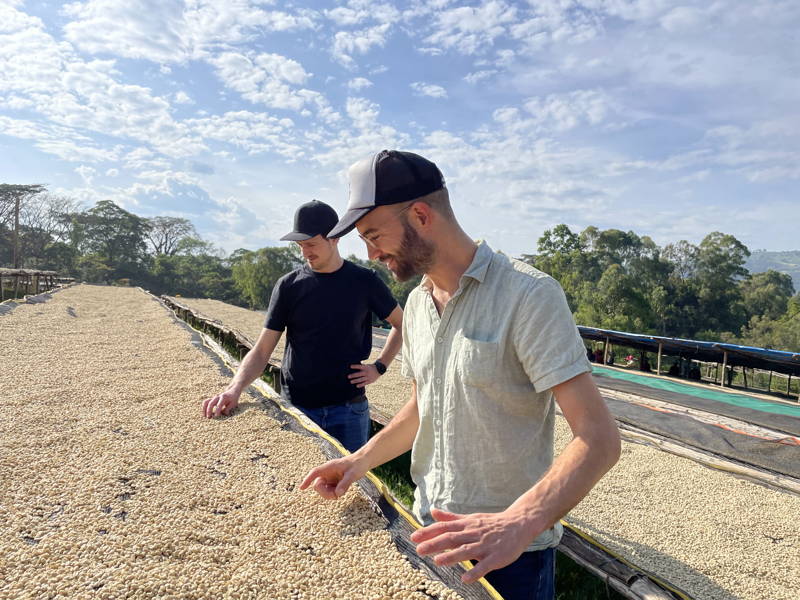
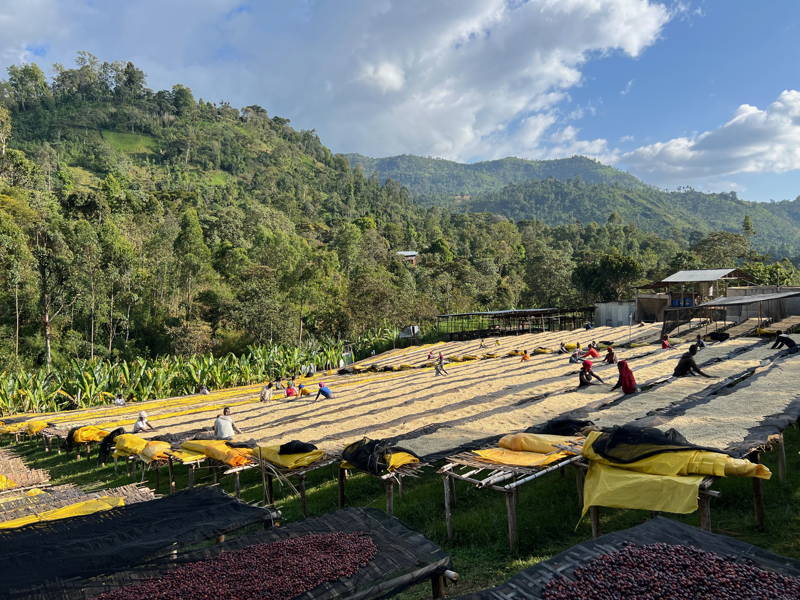
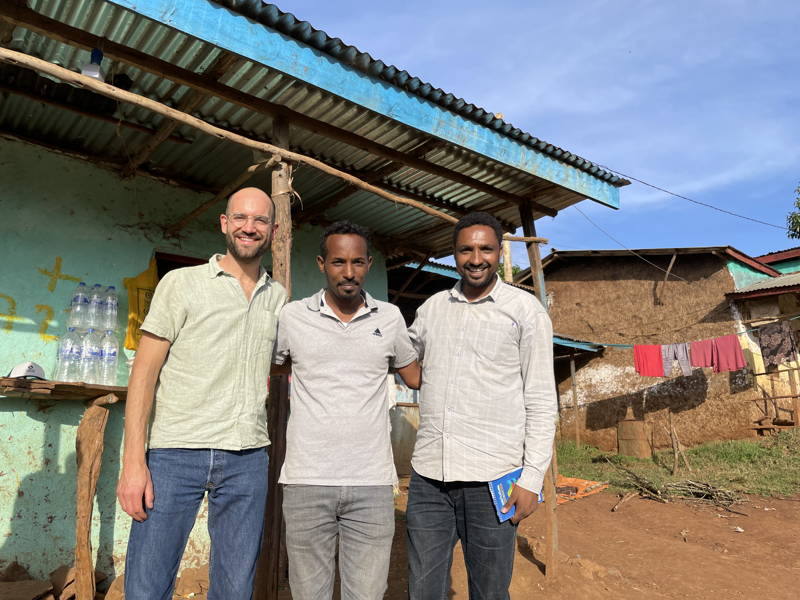
Principles of trade and social impact
Since 2016, Coffee Circle has been a proud member of the global network „Certified B Corporation“ – an association of certified social enterprises that use entrepreneurship to have a positive impact on our society and environment. The „B“ in B Corp stands for „Benefit“. The focus of the companies is not exclusively on financial success, but also on social and ecological impact.
When we founded Coffee Circle, we decided to have as much control as possible over the purchase of coffee and the remuneration of farmers and exporters. That was one of the reasons for us to pursue direct trade instead of fair trade. Direct trade describes direct trade with partners, coffee farmers, and exporters. We can therefore control exactly how much money ends up with the farmers with whom we have negotiated the payment ourselves. We therefore know which cooperatives our coffees come from. We regularly visit long-term partners and exchange information with them.
The Fairtrade minimum price is 1.60 $/lb (including the 0.20 $/lb social premium of the seal). In 2021, we paid an average of € 6.27 per kilo ($ 3.19/lb) of green coffee. In 2022 we paid $ 3.42/lb). The amount we paid to the farmers at origin in 2021 was 99.375 % above the Fairtrade minimum price of $ 1.60/lb and 145.38 % above the current ICO (International Coffee Organization) world market price of $ 1.30/lb. Read more here. This is a significant improvement in 2017: In that year, our weighted average purchase price was 58 % above the Fairtrade minimum price and 100 % above the ICO’s global market price.
Social impact through direct coffee purchases
We were thus able to reach 768,675 people through direct trade. Most of the proceeds from the cooperative are paid directly to the coffee farmers, while a small portion is used for running costs such as machine maintenance. Since not only the coffee farmers benefit from the increase in income, but also their families, the impact here is extended to family size.
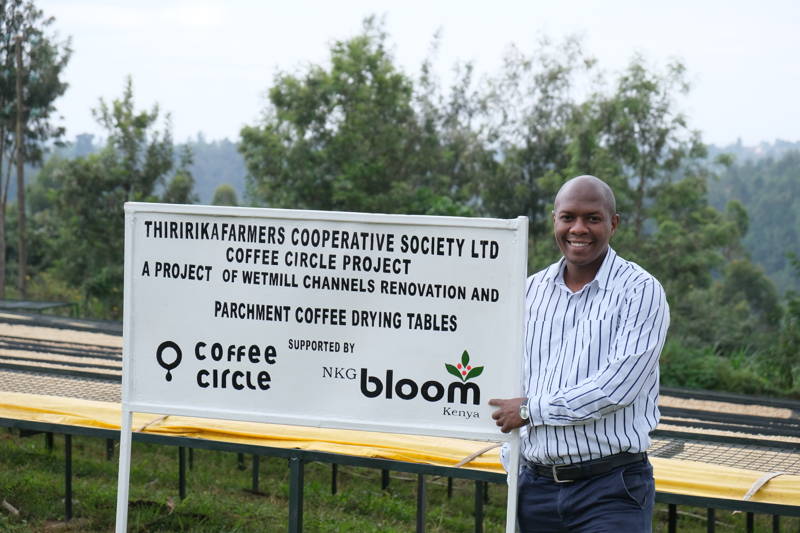
Impact through local projects
Our projects fulfill certain criteria:
- there is a concrete need.
- local people are involved in the implementation.
- the maintenance of the projects is not dependent on us.
- the impact is measurable, i.e. we can indicate how many people in the regions benefit from our project work.
So far, we have been able to reach 288,617 people through projects in the areas of education, health and coffee cultivation. Since Coffee Circle was founded, we have implemented a total of 20 projects, some of which are divided into sub-projects. The WaSH project in Ethiopia is still the largest we have implemented and, as mentioned above, consists of the installation of clean drinking water supplies, the construction of sanitary facilities, hygiene training and a biodiversity section, which includes planting trees and cooking courses.
Education is a particularly important part of our project work. Not only have we built a school in Ethiopia, but we have also financed quality training for farmers and cupping labs, which producers can use to measure the quality of their own coffee for the first time and improve it if necessary. This enables them to demand higher prices for their products and increase their income and wages accordingly.
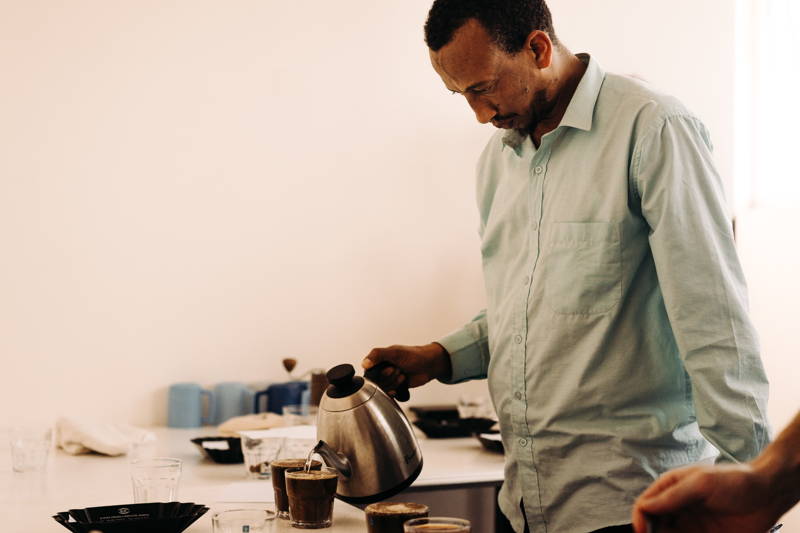
Our Value Chain and Education Projects
Sustainability
Several of our projects – such as the biodiversity part of our WaSH project – are directly concerned with protecting the environment, as sustainability is also an important issue that is particularly close to our hearts. As part of our biodiversity project in Ethiopia, we have been able to plant trees, prepare beehives, open tree nurseries and grow papaya trees. In total, we have planted just over half a million trees in the Jimma region so far.
We have also opened two tree nurseries for sustainable coffee cultivation in the Mana (Doyo Toli) and Gomma (Homa Funtule) districts. Warehouses have been built for nurseries, where numerous tree species are grown alongside coffee plants, which are used in fields for agricultural purposes, for reforestation or to provide shade. More than 177,000 seedlings have been successfully grown and distributed to regional farmers. All these seedlings offset 10 times more CO2 than we create through the logistics of buying and roasting coffee.
In 2022, we paid a direct CO2 compensation, as we believe that we can achieve more through direct measures. In addition, the shipping of our coffee to our customers is completely CO2-neutral with DHL Green.

